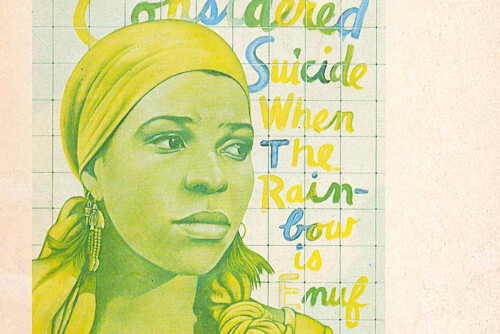The Inaugural Helen Pond McIntyre Lecture
October 20, 2004
A note 1 of thanks.
I must begin with words of gratitude, for I have significant debts to acknowledge. One is to Eleanor T. Elliott, whose gift has made the Helen Pond McIntyre Lectureship possible. Any society without an Elly Elliott ought to importune her for the chance to import her. Her integrity, selflessness, energy, imagination, and generosity render all that she touches better. A second is to the Barnard Women’s Center, of which Elly was a founder, and to its gracious invitation to serve as the inaugural Helen Pond McIntyre Lecturer. The Center has honored me. Still other debts are to Barnard itself. This college gave me a job when I was a graduate student at Columbia and provided the site on which I began my career and made friendships that I treasure. I am but one of the many women and men whose lives Barnard has transformed. A proud but unpretentious place, Barnard has been a pioneering author of the history of New York City, higher education, and women and gender. 2
Given the dignity of this occasion, I was afraid that my choice of a subject – sports – would be unbecomingly frivolous. I have no public credentials as an expert on the subject. It hardly matters that, as a tomboy child in a small city in the Pacific Northwest, I filched my brother’s copies of Sports Illustrated and that at night, instead of saying my prayers, I murmured the batting averages of the baseball players in the Pacific Coast League. Nor should my career as a player inspire trust: a high school senior elected president of the Pep Club because she was too incompetent to get on the drill team; a tennis player without reliable ground strokes; a college varsity basketball player with a career-wrenching knee injury; the only faculty member of the Barnard Women’s Liberation basketball team in the mid-1970s who, in the one game the team played, and that against a band of male faculty determined not to lose to The Libbers, fouled out in the first quarter after scoring one point; and, finally, a selectee for the Hall of Fame of a women’s sports magazine. My sport? The not wholly risible Hide and Seek.
Yet, my life has taught me that one must speak one’s passions. I love sports, be they individual or team sports, although I dislike any that abuses animals or fetishes machines. Not for me the tracks of dog racing or of NASCAR events. Validating my love is a sense of the rightness of sports. Done sanely, they benefit our bodies, character, and minds. They can teach fairness, persistence, discipline, grace under pressure, and graciousness in victory and defeat. Team sports are an exercise in cohesion, camaraderie, and the meanings of a common struggle towards a worthwhile goal. Anyone who has sat in a stadium during a Big 10 football game gets their ability to bind a community together. Culturally, all sports are a rich source of metaphors. I want children to play a game that stretches body, character, imagination, and mind – without going crazy about it all. It is an indicator of the effectiveness of sports that in 2004 UNICEF is sending sports equipment to children, including girls, in zones of war and armed conflict. For sports can be their “informal school and a safe haven.” 3
In brief, I am a fan. Yet, for seventeen years, I was at Barnard College in offices that were variously on the 4th, 3rd, and 1st floors of Barnard Hall. Here I became a self-conscious feminist and an academic student of women and gender. My hope in this lecture is to align the circuitry of the values of the fan, the feminist, and the student of women and gender. As a child fan and nascent feminist, I did premature forays into women’s studies. I rifled through history, literature, myth, and legend to discover whole, complete women athletes. I found instead complex, divided figures. Some narratives dramatized trajectories of achievement and loss. Amelia Earhart flew, but crashed in the Pacific and died mysteriously, her adventurous body never to be recovered. Other narratives told of achievement and its repudiation. Haunting me is a novel written for young girls. The title? Forgotten. The author? Forgotten. The story remains. An American female tennis player is good enough to get to the finals of Wimbledon. Despite the strenuous competition and hours of practice, she has fallen in love with a handsome American man. She decides to play on Center Court rather than to take the boat back home with him. Serving successfully, but distraught over his departure, she drops her racquet in mid-play and flees the court for the boat. She prefers the service of marriage to the service line; the grass of suburbia to the grass of Center Court.
One reason why the novel has stayed with me is because, in yet another demonstration of intertextuality, it builds on an older story that I had previously read, that of Atalanta. A figure in classical mythology, she is a formidable athlete. Taking part in the hunt of the Caledonian boar, she draws first blood, stopping only to kill some centaurs (the number varies from version to version) who attempt to rape her on the hunting field. She is a wrestler as well as huntress and self-defender. Having met the hero Peleus at the boar hunt, she defeats him in wrestling at the funeral games of Pelias, a favored subject of vase painters. Only later did I read of the probable sexual connotations of the grappling. 4 Perhaps the most-circulated story about Atalanta has to do with a foot race. When she was born, her father was murderously disappointed. He had wanted a son. To rid himself of the unwanted baby girl, he exposes her to the elements. However, a she-bear, a totemic form of Artemis, the virgin goddess of the hunt, rescues and feeds her. Supplanting the bad father is the divine surrogate mother. Having grown up, after becoming an Amazonian creature, she reclaims her biological parents. Her father accepts her, but wants her to marry. Now strong enough to set the conditions, she agrees to race any man whom her father thinks a suitable husband. If she wins, the man will be killed. If he wins, she will marry him. Like many classical Greek games, this is a competition with the highest possible stakes.
Then a suitor appears whom Aphrodite, the goddess of love, favors. His name varies in different versions of the myth. It can be Hippomenes, or Meilanion. Whatever the name, the goddess gives him three precious golden apples from the Hesperides, the end of the world. During the race, he throws the apples down at intervals, which some interpret as a marriage proposal. She stops to pick them up. Slowed down, she loses. He lives; she marries him; they have a son.
If we are responsible scholars, we can neither generalize about the historical experiences of Greek women nor universalize about mythic meanings. I have taken a liberty and invented the Atalanta Syndrome, derived from this myth. The Atalanta Syndrome names a cultural illness in which women are vulnerable and devalued. Atalanta’s father banishes her simply because she is a daughter. Yet, if nurtured, women can become self-protective and resist devaluation. They can – for example – become famous athletes. Their culture and families nevertheless believe that reproductive sex is preferable to virginity, marriage to the independence of the wilds and of sport. Even a goddess may line up against them. When these women enter the most important race of their lives, they can be distracted, for Atalanta by golden apples weighty with symbolism. They cannot stay the course. The consequence of their defeat, in which they may conspire, is conformity to the prevailing rules of femininity, for Atalanta marriage and motherhood. 5 Crucially, the United States has no single Atalanta, but many Atalantas, their identities shaped by race, family, religion, economic circumstance, education, and the sports that they have chosen or that have chosen them. The Atalanta syndrome has multiple variants.
- I wish to thank the University of South Carolina, where an early version of this lecture was given on February 27, 2003.[↑]
- Rosalind Rosenberg’s wonderful new history of the women at Columbia University and its institutions, Changing The Subject: How the Women of Columbia Shaped the Way We Think About Sex and Politics, New York: Columbia University Press, 2004, makes this point in persuasive detail.[↑]
- I read of this in a story dated July 4, 2002, on www.unicef.org. Jean Zimmerman and Gil Reavill, Raising Our Athletic Daughters: How Sports Can Build Self-Esteem and Save Girls’ Lives, New York: Doubleday, 1998, is an excellent account of the importance of sports for young women. Zimmerman is a Barnard alumna.[↑]
- In Mary R. Lefkowitz, Women in Greek Myth. Baltimore: Johns Hopkins University Press, 1986, p. 44.[↑]
- In 1903, W.E.B. DuBois played on Atalanta as the poetic name of the city of Atlanta, shrouded by the “Veil of Race,” and interpreted the myth as a warning against greed and lustful Mammonism by both whites and blacks. Chapter V, The Souls of Black Folk, ed. Henry Louis Gates Jr. and Terri Hume Oliver. New York: W.W. Norton, Critical Edition, 1999, pp. 54-61[↑]



